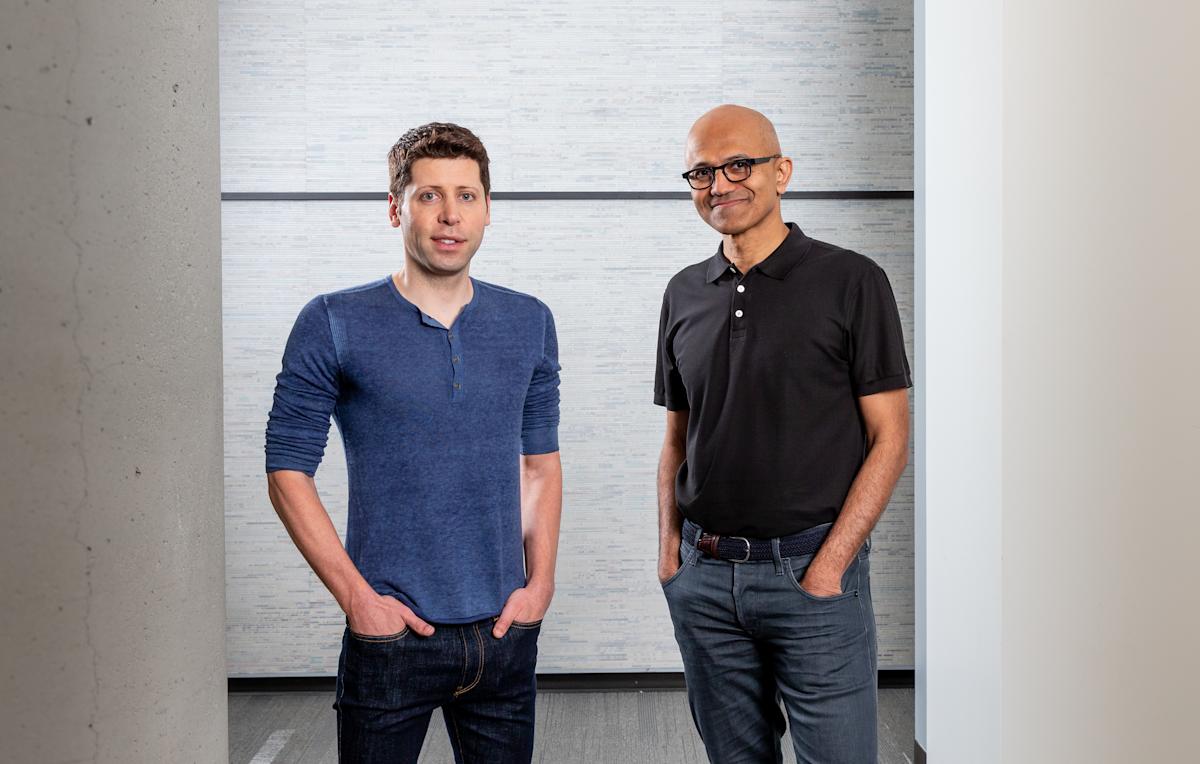How much power is enough for AI? Nobody knows, not even OpenAI CEO Sam Altman or Microsoft CEO Satya Nadella.
That has put software-first businesses like OpenAI and Microsoft in a bind. Much of the tech world has been focused on compute as a major barrier to AI deployment. And while tech companies have been racing to secure power, those efforts have lagged GPU purchases to the point where Microsoft has apparently ordered too many chips for the amount of power it has contracted.
“The cycles of demand and supply in this particular case you can’t really predict,” Nadella said on the BG2 podcast. “The biggest issue we are now having is not a compute glut, but it’s a power and it’s sort of the ability to get the [data center] builds done fast enough close to power.”
“If you can’t do that, you may actually have a bunch of chips sitting in inventory that I can’t plug in. In fact, that is my problem today. It’s not a supply issue of chips, it’s the fact that I don’t have warm shells to plug into,” Nadella added, referring to the commercial real estate term for buildings ready for tenants.
In some ways, we’re seeing what happens when companies accustomed to dealing with silicon and code, two technologies that scale and deploy quickly compared with massive power plants, need to ramp up their efforts in the energy world.
For more than a decade, electricity demand in the U.S. was flat. But over the last five years, demand from data centers has begun to ramp up, outpacing utilities’ plans for new generating capacity. That has led data center developers to add power in so-called behind-the-meter arrangements, where electricity is fed directly to the data center, skipping the grid.
Altman, who was also on the podcast, thinks that trouble could be brewing: “If a very cheap form of energy comes online soon at mass scale, then a lot of people are going to be extremely burned with existing contracts they’ve signed.”
“If we can continue this unbelievable reduction in cost per unit of intelligence — let’s say it’s been averaging like 40x for a given level per year — you know, that’s like a very scary exponent from an infrastructure buildout standpoint,” he said.
Altman has invested in nuclear energy, including fission startup Oklo and fusion startup Helion, along with Exowatt, a solar startup that concentrates the Sun’s heat and stores it for later use.
None of those are ready for widespread deployment today, though, and fossil-based technologies like natural gas power plants take years to build. Plus, orders placed today for new gas turbine likely won’t get fulfilled until later this decade.
